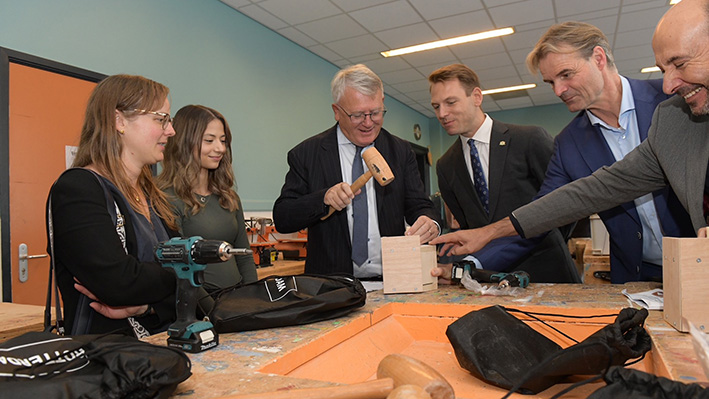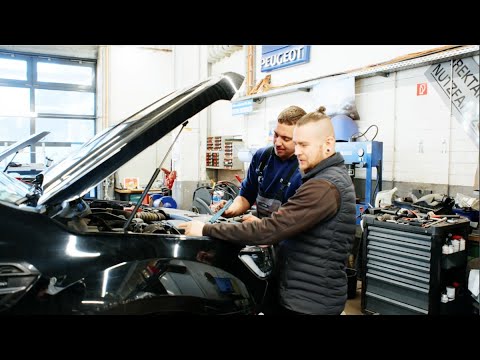
On 25 September European Commissioner for jobs and social rights, Nicolas Schmit, visited the School for Practical Education in Rotterdam. The project gives vulnerable young people a chance to realise their potential through quality education, as well as a helping hand toward social inclusion and employment.
Aided by the municipality of Rotterdam with nearly €2 million in ESF+ funding, the Labour Market Region Rijnmond invests in practical education which improves the employment prospects and sustainable work placement of 3 000 young people every year.
Commissioner Schmit said: 'I had a very interesting visit at the Practical school HPC in Rotterdam with Vice Mayor Tim Versnel. Engaged teachers and trainers are giving every young person their fair chance to discover their talents, and support and train them in practical skills to find a job.'
Practical education is a form of secondary education for pupils between 12 and 19 years old for whom regular theoretical secondary education is not feasible. At-risk youth with socioeconomic disadvantages, disabilities or mental health problems can receive additional support, helping them to acquire the necessary skills to be competitive in today’s labour market. Participants engage in training and gain experience in simulated workplaces, as well as through company-based internships with local entrepreneurs in the region.
The project works to empower participants, building their skillset and preparing them for follow-up education or sustainable, meaningful employment. Where possible, the pupils can obtain a certificate that supports their qualification in a chosen profession, as well as develop valuable skills that are recognised by employers – who are often hiring former interns. To date the project has been very successful, with a zero drop-out rate.
Thanks to ESF+ funding, at-risk students can gain valuable skills and experience, maximising their potential with hands-on experience, enabling them to overcome the difficulties that may have otherwise prevented them from pursuing a career.



